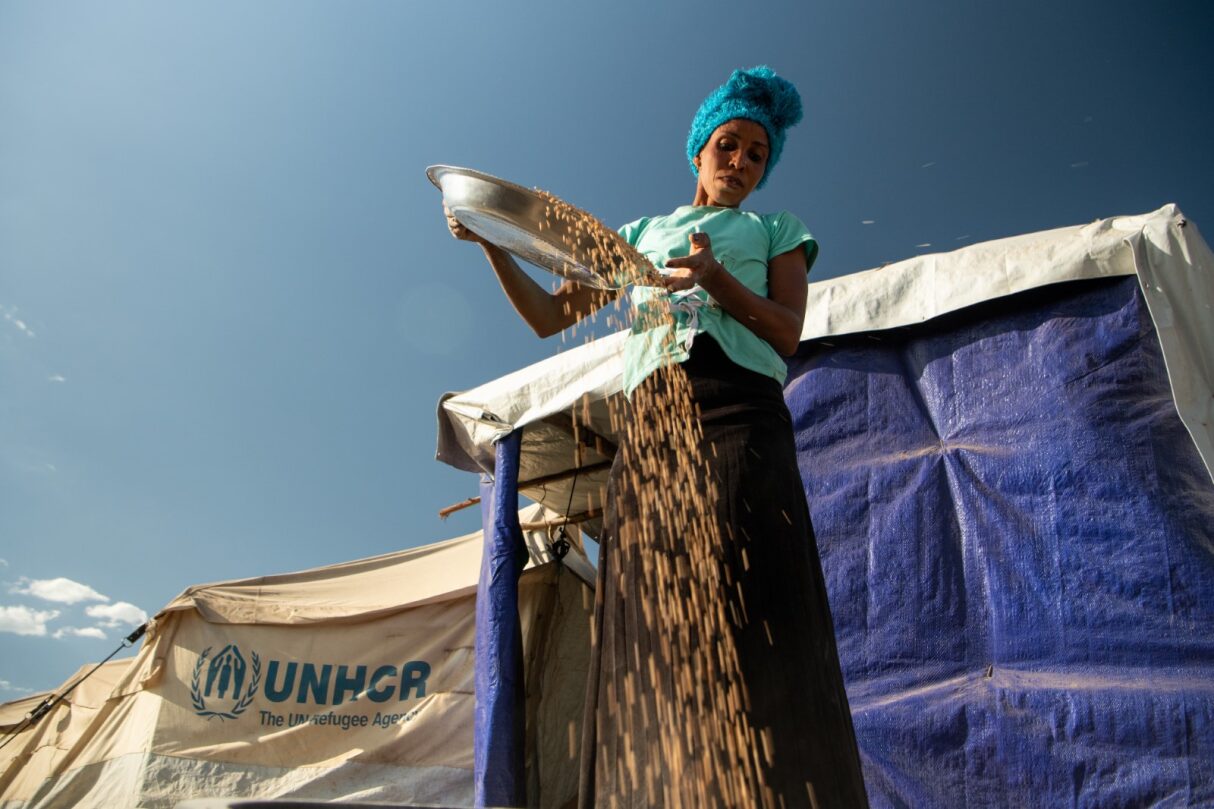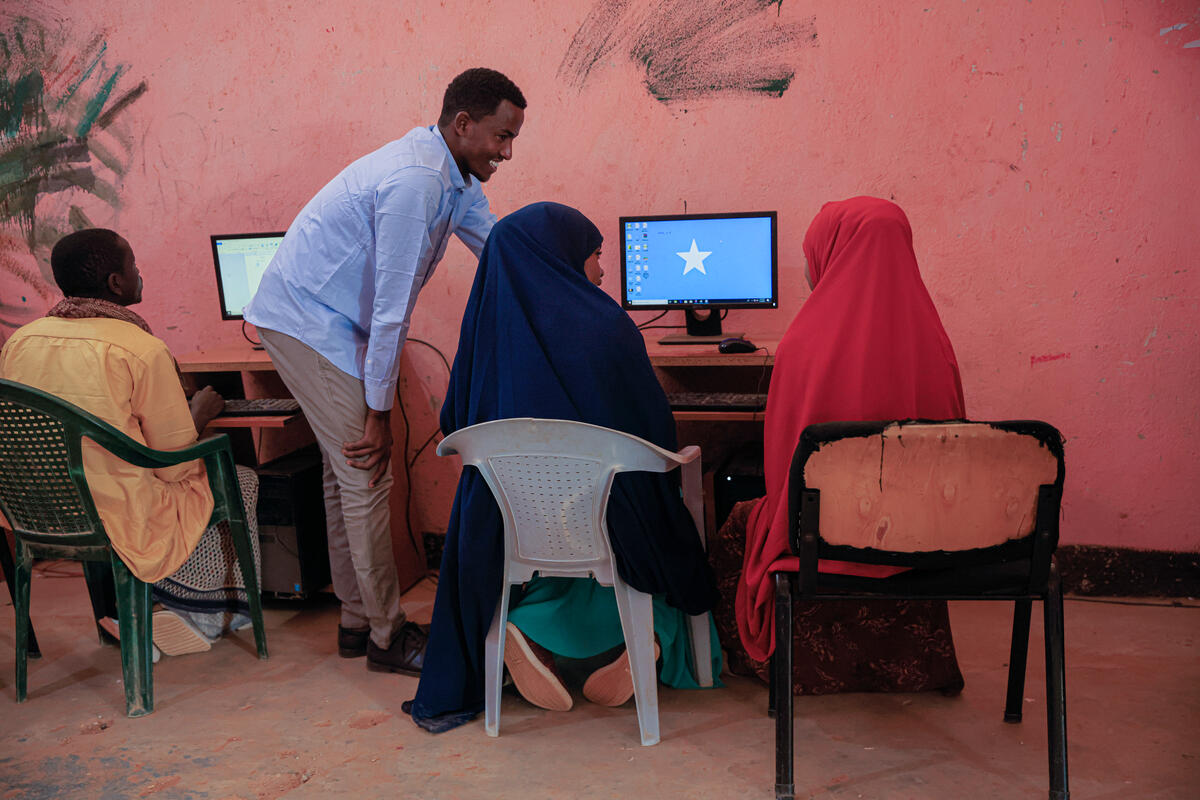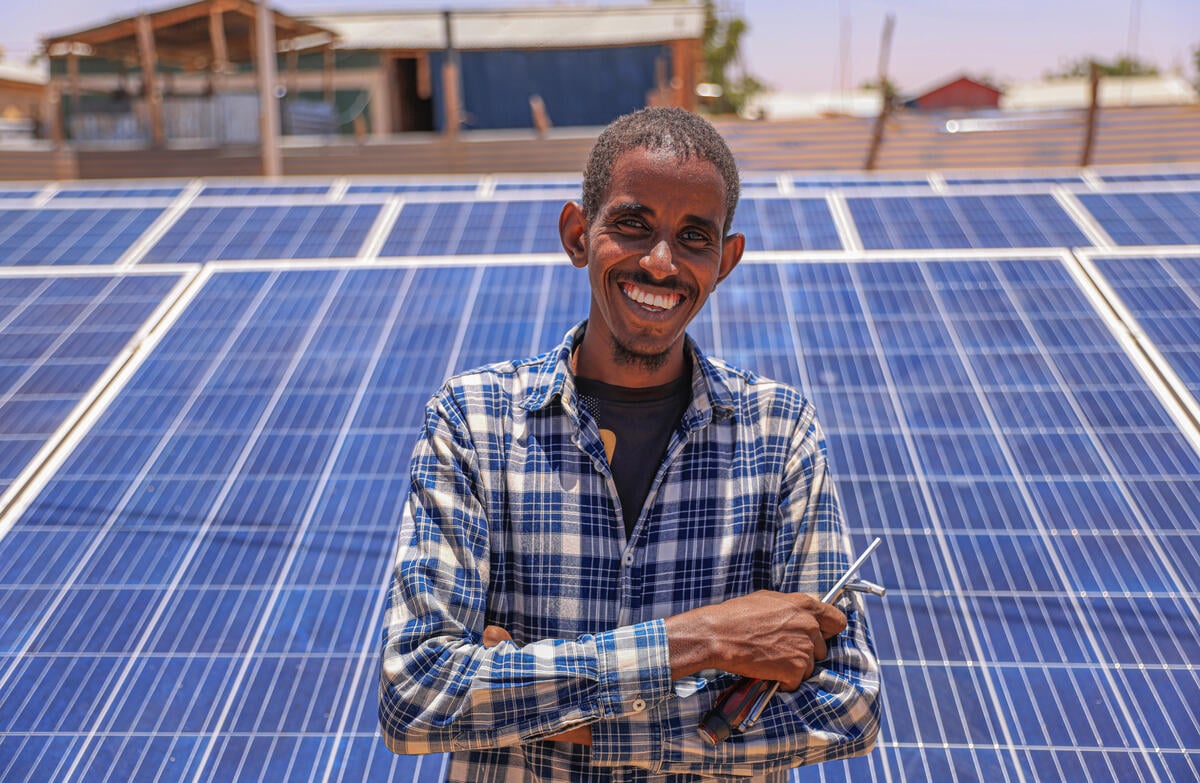Ethiopia rolls out new biometric system to enhance registration of refugees
Ethiopia rolls out new biometric system to enhance registration of refugees

Rahwa Mohammedhagos Mussa sits patiently at the Urban Refugee Reception Centre in Addis Ababa, folding and unfolding her hands on her lap. The 32-year-old mother of three is waiting with her family to be registered in a new biometric registration system.
Six years ago, Rahwa and her husband were living back home in Eritrea. But when their situation became difficult, they had to leave and seek safety in Ethiopia.
“Things became difficult,” she says. “We had to leave if we wanted to stay together.” They started life afresh in Ethiopia and had three children.
UNHCR, the UN Refugee Agency and the Government of Ethiopia registered Rahwa and her family in their systems but only captured general information. This registration process has over the years proven to be inadequate as a lot of detail goes unrecorded and updated.
In late 2016, UNHCR and Ethiopia, through the Administration for Refugee and Returnee Affairs (ARRA), signed a data sharing agreement and endorsed a multi-year registration strategy.

In July this year, UNHCR started rolling out a new and enhanced Biometric Identity Management System (BIMS) country-wide. Refugees like Rahwa can now appear at registration centres to have their biometrics taken, including iris scans and 10-digit fingerprints. They will also provide information on their educational and professional skills, as well as family members located in other countries. This improved data collection system could help to potentially unlock greater opportunities for all refugees, including the right to live outside of the camp or to advance their education. In some instances, the data will be important in reunification of family members abroad.
Cleve Brethneve Massamba, UNHCR’s Registration Officer in Addis Ababa is leading the country-wide rollout of the new system.
“This registration process is all part of a plan,” says Massamba. “Together with ARRA, we will work towards helping refugees through the process.”
All refugees in the country including over 100,000 refugees who arrived in 2017 are expected to be registered in BIMS by the end of 2018. Drawing lessons learned from a verification exercise carried out in 2016, the new system will involve a continuous registration process to update data and record details of new arrivals.
“This will enable us to better tailor the way in which we deliver protection and assistance to the people of concern.”
The new system will capture a range of data including information related to refugees’ skills, professions and household income.
“This will enable us to better tailor the way in which we deliver protection and assistance to the people of concern,” adds Massamba. “At the same time, it will facilitate the most suitable lasting solutions for them.”

As it enables UNHCR and partner agencies to capture detailed information on refugees, the BIMS is a strong component in supporting Ethiopia’s commitment to and implementation of the Comprehensive Refugee Response Framework (CRRF); a new and enhanced initiative that will guide the Government’s process in applying the pledges made at the 2016 Leader’s Summit in New York.
“We are now hopeful that with this new registration, urban refugees like us will be able to access more services.”
For Rahwa and the hundreds of thousands of refugees in Ethiopia, this system couldn’t have come at a more opportune time.
“Being a refugee and fitting in here is not easy. But we are now hopeful that with this new registration, urban refugees like us will be able to access more services,” she adds right before her new born child is registered in the new system.









